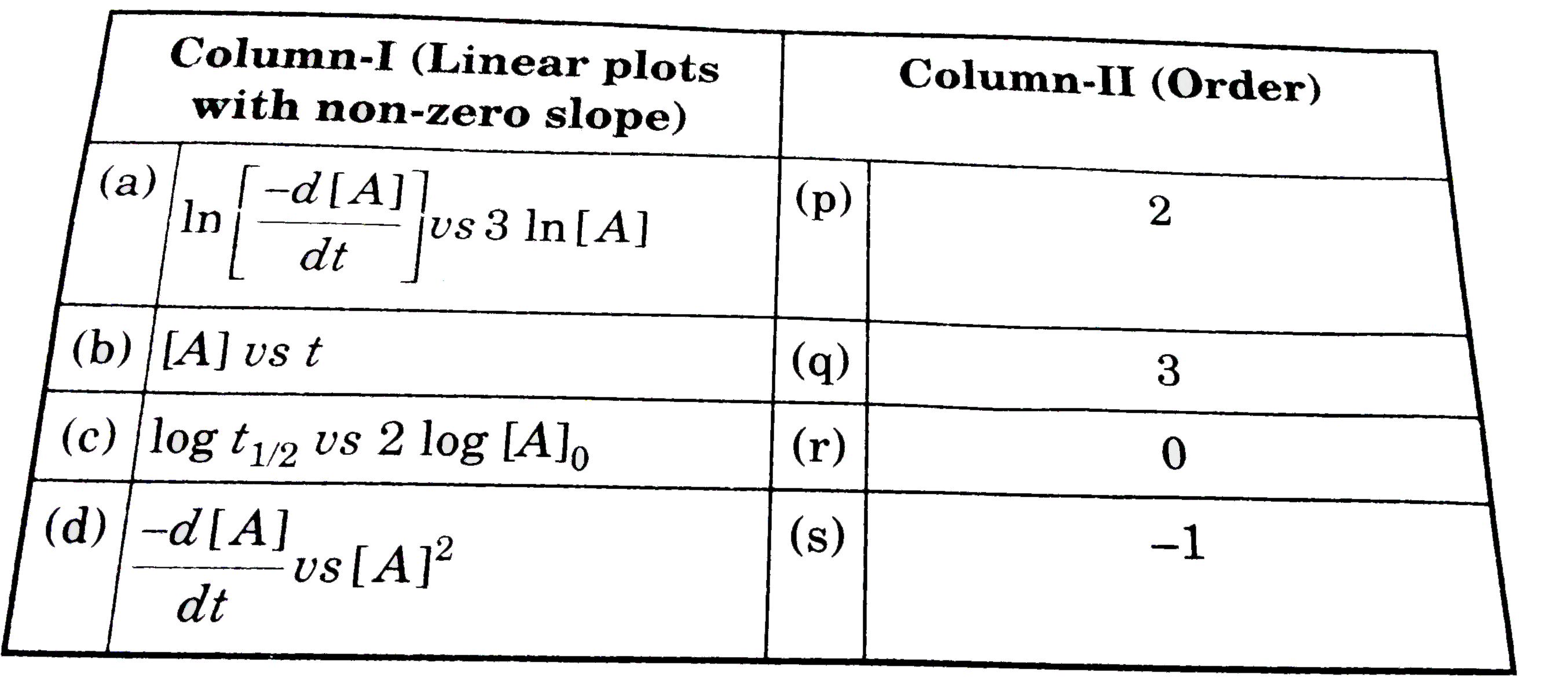Rate law for the reaction, A+2B→C is found to be
Rate =k[A][B]
Concentration of reactant 'B' is doubled keeping the concentration of 'A' constant, the value of rate constant will be _______
the same
doubled
quadrupled
halved
The correct Answer is:B
Rate of reaction, r1=k[A][B]
r2=k[A][2B]
r2=2r1
Topper's Solved these Questions
- BOOK - BITSAT GUIDECHAPTER - CHEMICAL KINETICSEXERCISE - BITSAT Archives16videos
CHEMICAL KINETICS
- BOOK - BITSAT GUIDECHAPTER - CARBOXYLIC ACID AND DERIVATIVESEXERCISE - All Questions34videos
CARBOXYLIC ACID AND DERIVATIVES
- BOOK - BITSAT GUIDECHAPTER - CHEMICAL THERMODYNAMICSEXERCISE - BITSAT Archives15videos
CHEMICAL THERMODYNAMICS
Similar Questions
At 298 K the value of rate constant for a reaction A+B→C is 1.10M−1s−1 At the same temperature, if the concentration of reactant is doubled keeping the concentration of 'A' constant, the value of rate constant (k) will be______M−1s−1
View Solution
[A] = reactant concentration at time 't', k = rate constantView Solution
Knowledge Check
- Question 1 - Select One
Rate law for the reaction, A+2B→C is found to be
Rate =k[A][B]
Concentration of reactant 'B' is doubled keeping the concentration of 'A' constant, the value of rate constant will be _______Athe sameBdoubledCquadrupledDhalved - Question 2 - Select One
Rate law for the reaction, A+2B→C is found to be
Rate =k[A][B]
Concentration of reactant 'B' is doubled keeping the concentration of 'A' constant, the value of rate constant will be _______Athe sameBdoubledCquadrupledDhalved - Question 3 - Select One
The rate law for a certain reaction is found to be : Rate = k[A][B]2 How will the rate of this reaction compare if the concentration of A is doubled and the concentration of B is halved ? The rate will :
Aremain the same.Bbe double the original rate.Cbe triple the original rate.Dbe one-half the original rate.
In a reaction , A+B→C , the rate expression is R = K[A][B]2 . If the concentration of both the reactants is doubled at constant volume then the rate of reaction will be
View SolutionFor a hypothetical reaction, A+B+C→ Products, the rate law is determined to be rate =k[A][B]2. If the concentration of B is doubled without changing the concentration of A and C, the reaction rate:
View SolutionFor a reaction A+B→C, the rate law is written as r=k[A]2[B] . Doubling the concentration of 'A' without changing concentration of 'B' increases the rate of reaction by
View SolutionIn the reaction 2A+B→A2B, Rate = k[A]^2 [ B ] if the concentration of A is doubled and that of B is halved, then the rate of reaction will:
View SolutionFor the reaction A+B→C, it is found that doubling the concentration of A increases the rate by 4 times, and doubling the concentration of B doubles the reaction rate. What is the overall order of the reaction ?
View Solution

